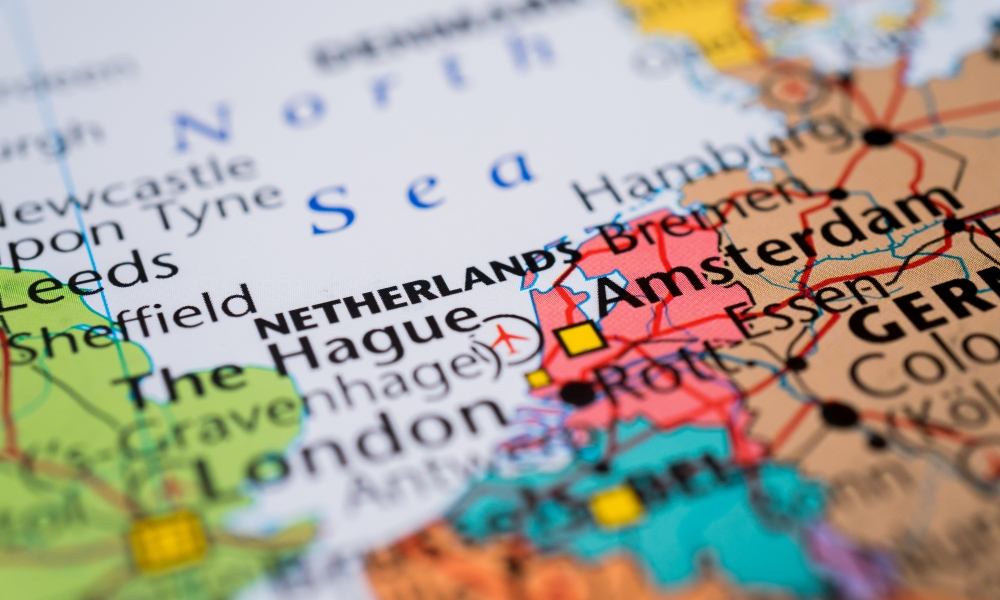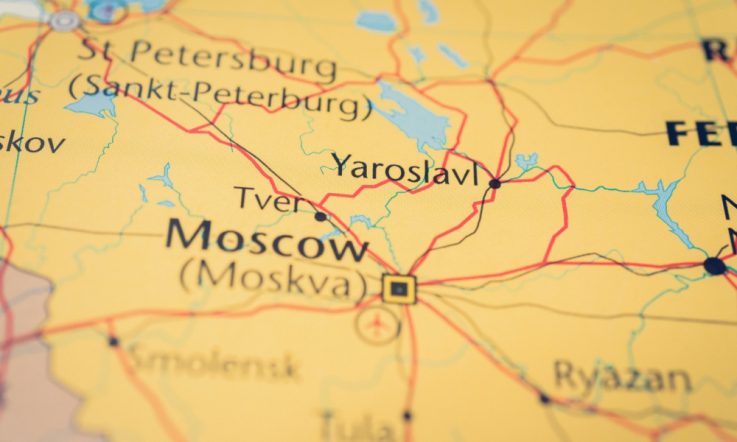A high rank in the Programme for International Student Assessment (PISA) is desired by many nations and top performers are closely examined. Ahead of next month's release of results the OECD's 2018 international study of student performance in Maths, Science and Reading, Teacher takes a closer look at one of PISA's consistent performers – the Netherlands.
The Dutch education system is often praised internationally as a good example of significant freedom of education; autonomy for parents, teachers and school management.
Half of the teachers are employed part-time, two or three days a week. There is no national curriculum. Schools decide how to achieve government-determined educational objectives (so-called ‘kerndoelen'). In primary education, there are just 58 of these main objectives.
Nonetheless, the system is described as a stand-out for its high-quality standardised assessments. Also, a UNICEF study (Adamson, 2013) of child wellbeing in 29 of the world's advanced economies found Dutch children to be the happiest.
An OECD review of education policy in the Netherlands also praises the Dutch school system as one of the best in the OECD. ‘It is also equitable with a very low proportion of low performers … Basic skills are very good on average… This is supplemented by a strong vocational education and training system with good labour market outcomes.
‘The system is underpinned by a high level of decentralization, balanced by a national examination system and a strong Inspectorate of Education, school financing which support disadvantaged students, experimentation and innovation, and good data and research.' (OECD, 2016).
At this system's heart is a commitment to equity. This is illuminated in The Dutch Way in Education: Teach Learn & Lead the Dutch Way (OMJS 2017), an in-depth analysis of education in the Netherlands – initiated by Onderwijs Maak Je Samen and the De Brink foundation – comprising contributions from a wide range of experts.
Lead author Professor Alma Harris, of the University of Bath, writes that the international community can learn three essential things from the Dutch in education:
- strong collaboration between teachers, school and municipalities can be used to help raise achievement;
- include, not exclude, disadvantaged and marginalised students, and students who are refugees from other countries; and,
- it is ‘perfectly possible to combine educational equity and quality'.
‘For those interested in navigating the slopes of quick-fix, high performance, the education system in the Netherlands is categorically off-piste,' Harris writes.
‘The Dutch Way emanates from a long history and a proud tradition of building civic society around democratic values that continue to define both an education system and a country.
‘In years to come, when the high-octane remedies for better educational performance have been over-sold to the point where they have lost their lustre and way, Dutch educators will still be striving, in their quiet but determined way, for educational excellence through equity.'
Supporting underperforming students
Job Christians, publisher of The Dutch Way in Education, echoes Harris. ‘Although we encourage every educator or policymaker to visit our country and to visit our schools, probably nothing can be copied. I am afraid there is no such thing as a quick fix,' he tells Teacher.
However, he does shine a light on particular aspects of the Dutch system. ‘We would like to challenge you to see the effects of not having a national curriculum, the effects of having a lot of freedom in education, to see how we measure not only academic achievement but also the wellbeing and involvement of our students, how we organise integrated [childcare] centres [with schools] as complete facilities for children from zero to 13 years.'
Asked what the Netherlands has been doing to achieve the result that Dutch students scored above the OECD average in all subjects in the 2015 cycle of PISA testing (with an overall international ranking of 11th in Maths, 15th in Reading and 17th in Science), he says: ‘Scoring high on international comparisons on education has never been high on the Dutch agenda. Constantly improving education is.'
The OECD notes that in the Netherlands, the negative impact of poverty and disadvantage on academic performance is lower than in many countries participating in PISA. Christians says this is attributable to a strong focus on supporting underperforming students.
According to the PISA proficiency scales, low performers are students are those who come in below Level 2. This level of proficiency is considered ‘too low to enable them to participate effectively and productively in life'. The Dutch Way highlights the fact that the Netherlands has low numbers of students scoring below Level 2 (less than the OECD average in all three subject areas) and an above-average proportion of resilient students – those who overcome socioeconomic disadvantage to exceed expectations.
In the 2016 cycle of PIRLS (Progress in International Reading Literacy Study), it was one of only a handful of countries where 99 per cent of students achieved at least the low international benchmark, alongside Russia, Hong Kong, Norway and Latvia.
However, with respect to the Netherlands, Christians is also quick to note that there is more to be done. ‘Still there is a difference between the bigger cities and the countryside. In big cities like Rotterdam and Amsterdam, you can see more differences between schools in terms of economic background of children, educational concepts, etcetera.
‘One of the biggest issues in our country currently is segregation. Our Inspectorate of Education recently stated that while there were “rays of hope” in terms of equality of opportunity, inequality and segregation in schools persisted by way of parental education and income, and educational choices made by boys and girls, among other factors.'
Looking ahead, he says other striking challenges – alongside ‘polarisation and segregation' – in the Netherlands for the coming years are ‘growing inequality, organising a good balance in the way we educate our children; not a one-sided focus on cognitive skills only' and a shortage of teachers. ‘By 2022 we expect a shortage of more than 4000 full-time teachers,' Christians says.
Perhaps the best kept secret in the world?
So, why have the Dutch been so quiet about their educational successes and accomplishments?
‘Well, that's a good question,' Christians responds. ‘This touches the core of our culture. The Dutch are not used to being proud. While working with Professor Alma Harris, we spoke about our national modesty. “Being proud is against the grain of the Dutch,” says Professor Harris. That was when the seed was planted to start writing a book about the Dutch educational system; perhaps the best kept secret in the world.'
But, the last word is from Professor Harris and it concludes The Dutch Way in Education:
‘Currently, there are dark clouds rolling over many countries and education systems. The shadows of bigotry, fear, prejudice, and discrimination are threats to children who are different, marginalized, poor or simply fleeing from war-torn places.
‘The future currency of educational excellence will be access and, in some countries, barriers are already being erected to exclude rather than include, those most in need.
‘In sharp contrast, the education system in the Netherlands continues to exemplify its belief in fairness and inclusivity, coupled with the collective commitment to social justice, equality, and educational access for all.'
References
Adamson, P. (2013). Child Well-Being in Rich Countries: A Comparative Overview. Innocenti Report Card 11. UNICEF.
Harris, A., & Jones, M. S. (2017). The Dutch Way in Education: Teach, Learn and Lead the Dutch Way. The Netherlands: Uitgeverij OMJS.
OECD (2016), Netherlands 2016: Foundations for the Future, Reviews of National Policies for Education, OECD Publishing, Paris, https://doi.org/10.1787/9789264257658-en
The PISA 2018 results will be released on 3 December. Stay tuned for our coverage.



